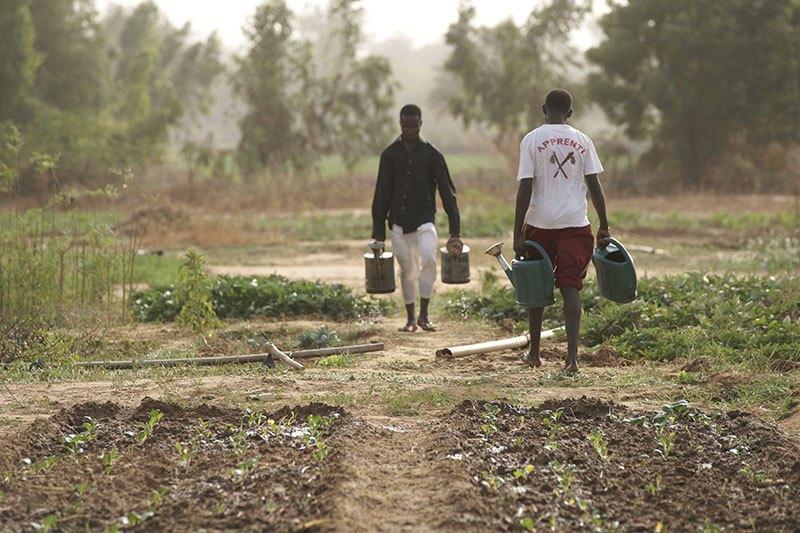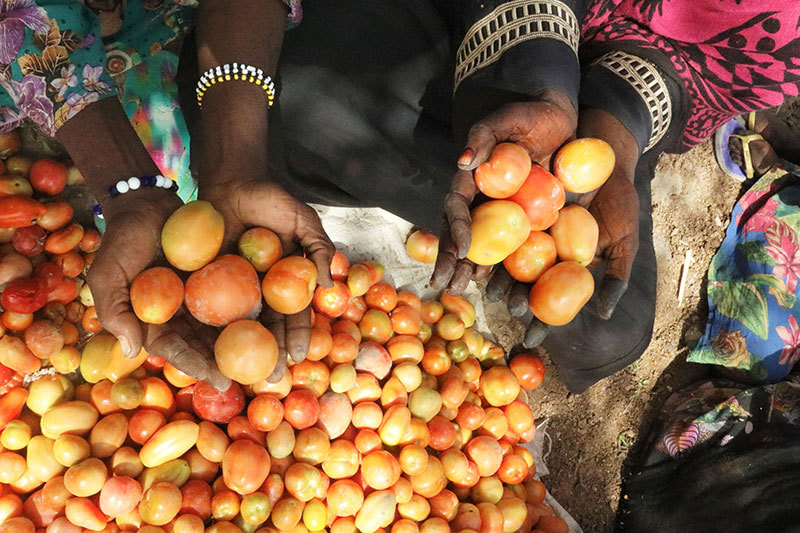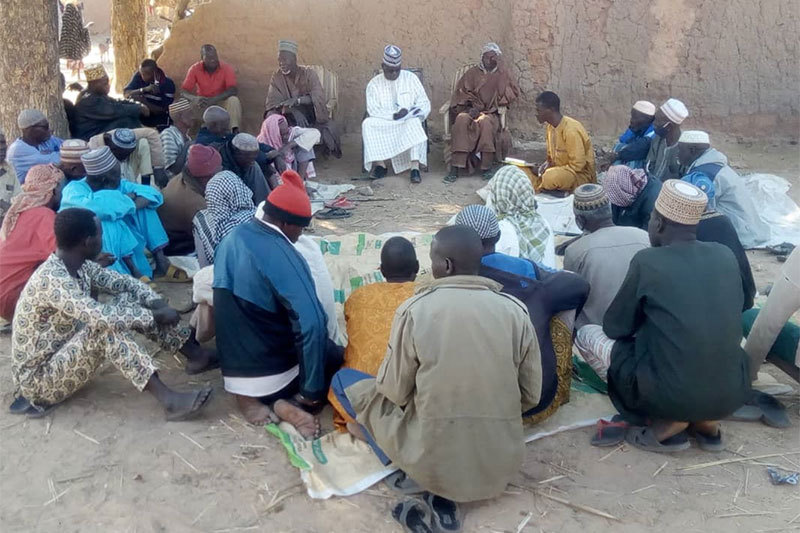Nexus Blog // Combating climate change: an opportunity for conflict prevention in the Sahel
By Jakob Seidler. Conflicts over natural resources (water, land, energy) play a significant role in the deterioration of the security situation in the Sahel and is a major constraint for sustainable development. In this region, climate change increases stress and certain risks, such as low water availability for crops and animals, and is a proven source of conflict. In the face of immense, complex and interconnected challenges, it is crucial to adopt a collective, integrated approach to natural resource management ‒ particularly in areas of existing or emerging conflict ‒ for the benefit of the local communities.

Copyright: GIZ
Conflicts over natural resources (water, land, energy) play a significant role in the deterioration of the security situation in the Sahel and is a major constraint for sustainable development. In this region, climate change increases stress and certain risks, such as low water availability for crops and animals, and is a proven source of conflict. In the face of immense, complex and interconnected challenges, it is crucial to adopt a collective, integrated approach to natural resource management ‒ particularly in areas of existing or emerging conflict ‒ for the benefit of the local communities.

Exploring the relationship between natural resource management and conflict prevention
This is what the European Commission (DG INTPA) and the German Ministry for Economic Cooperation and Development (BMZ) are trying to address through the FREXUS project: "Improving Climate Security and Resilience in a Fragile Context through the Water-Energy-Food Security Nexus" (2019-2021).
With a budget of €5 million and implemented by the Deutsche Gesellschaft für Internationale Zusammenarbeit (GIZ), the Frexus project operates in three countries in the Sahel region: Mali, Niger and Chad. Its objective is to develop and test an approach that targets both transparent management of natural resources and equitable access in areas under stress and, in the long term, to implement concrete actions in the field (such as a water point shared by various users in a pastoral area).
The project has supported the development of a comprehensive conflict identification and early warning tool, taking into account the Water-Energy-Food Security Nexus approach. This tool is based on a combination of indicators that examine whether water, energy and food security challenges are leading to conflict. Initially developed by the Water, Peace and Security Partnership, it is currently being finalised.

Multi-sectoral and stakeholder cooperation is key
When an area of emerging conflict is identified, the project develops a more in-depth analysis. This includes the use of a local analysis tool (which will include a dashboard with both technical modelling and stakeholder perceptions) in order to not only identify the main drivers of natural resource conflicts, but also to support the development of appropriate responses.
Developed jointly with its future users at both regional level, such as the Niger Basin Authority (NBA) and the Lake Chad Basin Commission (LCBC), and national level with the respective focal structures, relevant sectoral ministries and universities, it will be tested in 3 pilot areas (1 per project country) with relevant stakeholders, such as local and traditional authorities, civil society as well as user representatives. The project thus encourages cooperation between a multitude of actors from different levels and backgrounds in order to solve problems in a collaborative and transparent way, and thus positively influence the livelihoods of local communities. As one member of a partner organisation put it:
“The success of the project will largely depend on us as actors. We have to work fast and well!”

In the pilot areas, the diagnostic phase has already begun with an assessment of the water resource situation and the launch of the analysis of conflicts and climate risks. On the basis of this shared understanding of the area by all the stakeholders concerned, a consultation phase will follow in order to reach local agreements on the management of a common resource or territory. The implementation phase of prioritised actions, agreed on by all stakeholders involved, will then begin.
Article by Jakob Seidler originally published here on Alliance Sahel
More about the Frexus Project
- Frexus Project / Sahel
- Nexus Fact Sheet // Frexus: Improving security and climate resilience in a fragile context through the Water-Energy-Food Security Nexus
